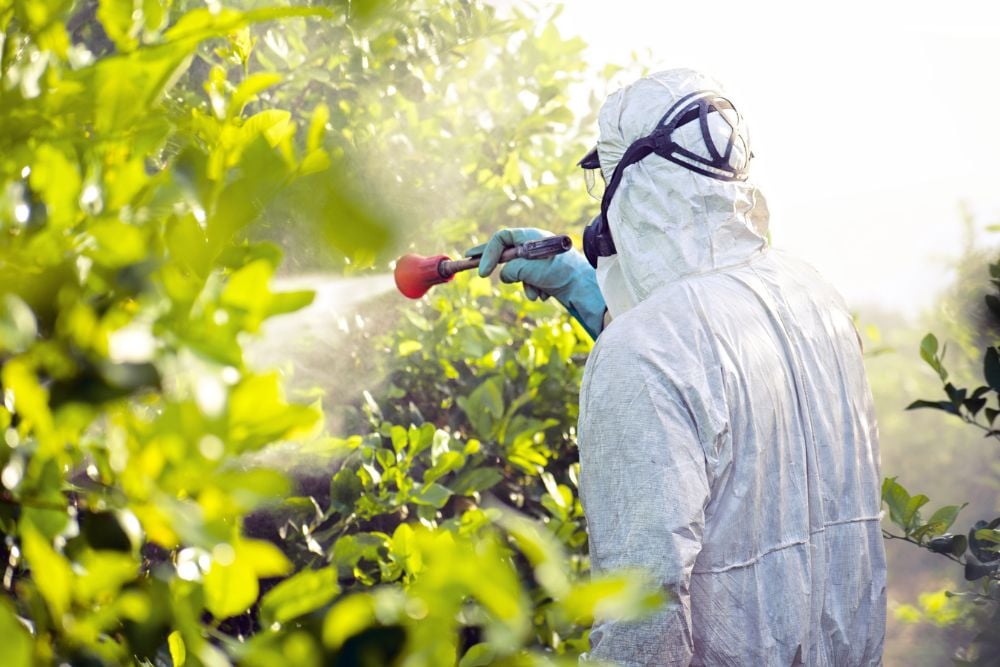Maintaining Healthy Sperm: Pesticides and Tips for Optimal Fertility

Despite our best efforts to follow a proper lifestyle, factors beyond our control can disrupt fertility and general reproductive health. Sweeping research has illustrated pesticides’ harmful impact on worldwide sperm function, specifically count and concentration. It can be difficult to avoid these toxins completely, as they’re deep-rooted in society. You and your doctor can discuss taking certain measures, including adopting certain lifestyle changes, particularly diet, to reduce pesticide exposure.
Specific Pesticides Impacting Sperm Function
A ground-breaking meta-analysis, comprising 20 global studies, found that over the last 50 years, global sperm count has fallen by around 50%. Two widely used, chemically similar contaminants were shown to play crucial roles.
- Organophosphates are a common compound in herbicides, pesticides, and insecticides. Other uses include plastic and solvent development, construction, and multiple consumer products.
- N-methyl carbamates are key components in leading insecticides. As per the US Centers for Disease Control and Prevention (CDC), they’re sprayed on crops, including produce and grains.
Insecticides’ Effects on Sperm Health
These chemicals may significantly harm male fertility, although these effects often don’t appear until pregnancy is attempted. Sperm is a very sensitive indicator of male health and fertility, including count, the average number of sperm in a semen sample. It also impacts sperm concentration, the measure of sperm per milliliter (ml) of semen, with a healthy man having a single ejaculation containing 1 million sperm.
Men with the highest pesticide exposure, like agricultural workers, have dramatically lower sperm concentrations than those with the least exposure. Multiple studies show they directly disrupt sexual hormones, destroy testicular cells, and change the brain’s neurotransmitters (chemical messengers), affecting sperm production. The Environmental Working Group (EWG), a nonprofit focused on consumer health, toxic chemicals, and pollutants, gave major food manufacturers a collective “F” grade for their efforts to reduce foods’ pesticide levels. The EWG creates an annual list, the “Dirty Dozen,” ranking nonorganic produce with the most contamination, and for 2023, 210 different pesticides were found.
Dietary Changes May Improve Sperm Function
Men are advised to avoid unnecessary pesticide exposure, especially if considering conceiving children. A healthy diet is crucial, particularly organic foods, which may limit pesticide intake. While these foods may not be more nutritious, typically, they have little or no pesticide residue. Other measures include:
- Should organic produce be unavailable or too expensive, peel and wash nonorganic foods thoroughly, with water only, (no detergents).
- Wash your hands with warm water and soap for 20 seconds before and after preparing fresh produce.
- Rinse produce before peeling, preventing dirt and bacteria from transferring from the knife.
- Use a clean vegetable brush to scrub firm produce, like apples.
- Dry the produce with a clean cloth or paper towel to block bacterial transfer.
For healthier sperm, consume ample amounts of fruits and vegetables, rich in antioxidants, nutrients that protect reproductive organs from oxidative damage and inflammation. Your diet should also contain whole grains, nuts, and seeds, and less fat, sugar, soy, and red meat. Sperm health may also be affected by such factors as obesity, chronic disease, and exposure to environmental toxins, like pollution and per- and polyfluoroalkyl substances (PFAS), household chemicals.
Limit Pesticide Exposure To Shield Sperm Health
A common contamination source, pesticides may greatly disrupt sperm count and concentration. You and your doctor can discuss methods to reduce exposure, including dietary changes, to promote sperm function. To schedule a consultation for sperm testing or have general fertility questions, we invite you to contact us today.






